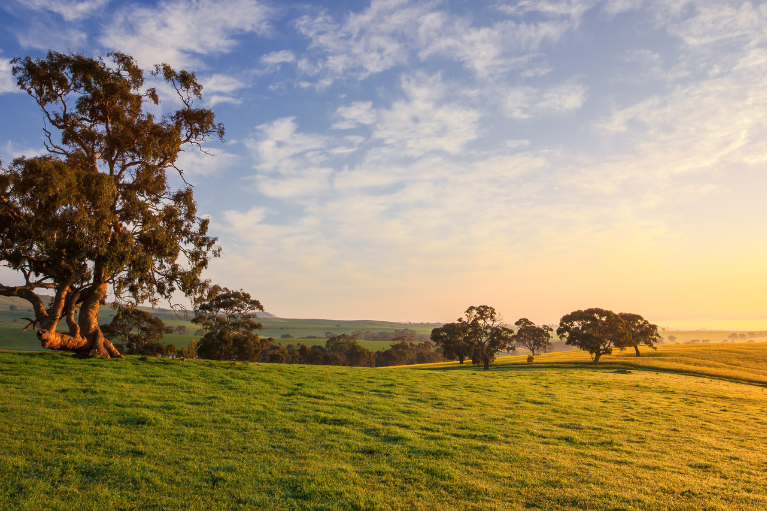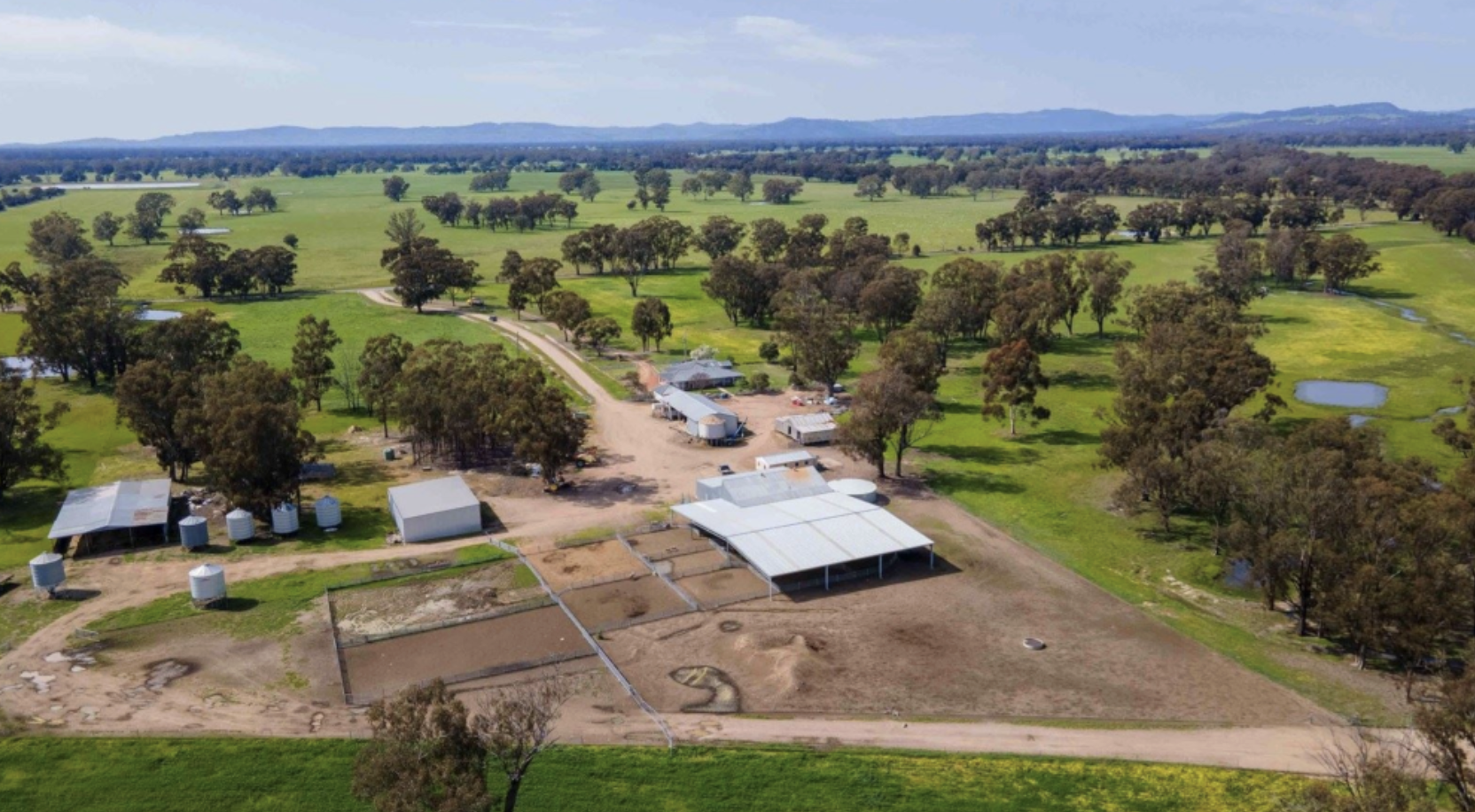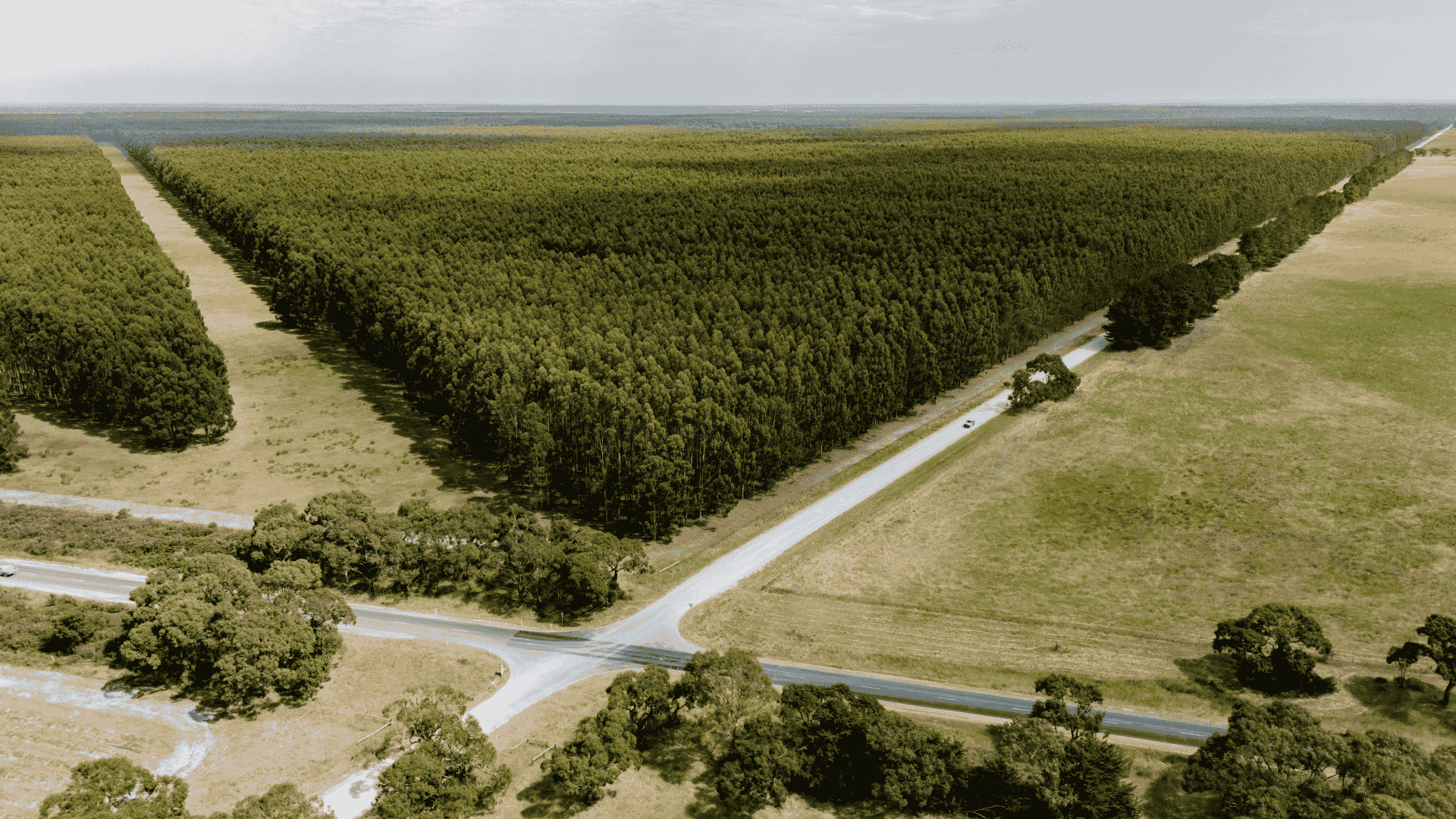Multi-buyer transaction completed for iconic Balmullin aggregation
In this week’s property round-up with Kylie Dulhunty: A diverse line-up of significant rural listings and sales, spanning a landmark Balmullin...

With official interest rates rising five times this year and commodity prices for livestock down by half to two-thirds, the heat came out of the rural property market.
Land prices haven't moved downwards significantly, most observers say, although power agent Col Medway of LAWD reckons that vendors in the grazing space have been accepting a 10% drop in value to get the deal done.
Read on to hear what some of the country's top property watchers think about what the market told us in 2023 and the outlook for 2024.
Jump to
South Queensland & Northern NSW
Ben Waters advises institutional investors and large family farming operations on acquisitions and divestments, strategy and capital structure.
How would you sum up 2023?
There has still been good demand for good properties in 2023 but the rising interest rate environment has definitely curtailed enthusiasm for farming families.
It hasn’t taken them out of the market but because serviceability has now become a key issue for banks, the process of buying is being conducted more thoroughly, and we are not seeing the same speed of sale as we saw in 2022.
That has opened the door for institutional investors who need to run an acquisition through a due diligence process, and this extra time allows them to participate in the market.
What we have been seeing toward the end of the year is a willingness to negotiate on terms, whether that be a longer settlement, different settlement structures and even vendor finance. There has been more talk around structure that suits the buyer than in previous years.
What is your expectation for 2024?
 We will still see quality properties trade at strong values but properties with any issues will come under more scrutiny. That is quite common when buyers move at a slower pace. With the uncertainty around commodity prices, interest rates and weather, buyers are more discerning.
We will still see quality properties trade at strong values but properties with any issues will come under more scrutiny. That is quite common when buyers move at a slower pace. With the uncertainty around commodity prices, interest rates and weather, buyers are more discerning.
I expect that cropping and irrigation properties will retain strong values. Grazing properties that have seen that price impact will be more of a wait and watch, as participants work out whether the recent rains demonstrate a break in the season or are a short-term blip.
Quality will absolutely stand out, and anything with production certainty will be well sought after.
For institutional investors, they are looking for properties that provide scale, either as a standalone purchase or a helpful bolt-on. I expect we will continue to see strong overseas institutional demand, who are still looking for the right property and have the ability to ride out the short-term cycle with their longer term view.
For family farms, I expect they will be focused on value additions and looking at cash flow and seasonality effects. That’s likely to be smaller properties that fit into an existing family portfolio.
If there is a clear sign that interest rates have peaked, that will have a significant positive effect, particularly at that family level and contribute to buyer confidence.
What is your advice for those looking to sell?
Working well with your appointed agent is critical.
There are lot of people who are thinking that now is a good time to sell. But with the market slowing in terms of acquisition, it is important that you find the right agent who knows the market for your property. And then listen to what they say.
Having a good dataset that supports the quality of the property’s production will help achieve value when buyers are asking hard questions.
Colin Medway is one of Australia’s most highly regarded rural real estate agents. In the past five years alone, he has been directly involved in more than $1 billion of rural asset sales.
How would you sum up 2023?
In hindsight, it now looks like the market probably topped out last spring as the livestock industry ground to a halt as the year progressed on the back of the seasonal outlook. With producers racing to the exits and flooding the system with livestock that couldn’t be handled by processors, that crashed the price and with it market sentiment.
That has put a big handbreak on the market and I would say that the land values have come off around 10% in order to get deals done. Most vendors are still happy to transact at those levels given the appreciation in land values they have seen in the last five years.
What is the outlook for 2024?
 We have already seen the recent rains cause a rebound in livestock prices, which has kicked inquiries into gear and helped get things back on an even keel. Overall I think 2024 will be a year of consolidation and I expect that prices will continue to move sideways for a while.
We have already seen the recent rains cause a rebound in livestock prices, which has kicked inquiries into gear and helped get things back on an even keel. Overall I think 2024 will be a year of consolidation and I expect that prices will continue to move sideways for a while.
Those buyers who are waiting for cheaper properties are likely be disappointed as vendors aren’t going to concede much more than that 10% reduction we’ve seen recently.
In southeast Australia, crop results have been strong generally despite some frost impact and some wet weather through harvest. I therefore expect that mixed farming and cropping assets will continue to be sought after. And of course, assets with large water entitlements and scale will always be in demand.
While it is difficult to forecast what the Reserve Bank will do, I don’t expect that a cut in interest rates, if it happened next year, will push the market up. It might help with getting deals done at current levels but I do not think it will lift land values.
What are you advising vendors?
The transactions are still occurring but vendors will need to be more patient and more flexible about what you are prepared to accept in regards of terms. I don’t think vendors will need to erode value but will have to be accommodating in terms of settlement times and access to the property.
We may even see a return of vendor finance in order to get deals done in some situations.
Lachlan Dunsdon has extensive rural background with practical and managerial experience in sheep and cattle grazing, dryland and irrigated farming, as well as horticultural enterprises.
He has undertaken a wide range of valuation work for grazing, farming and specialised intensive agribusiness enterprises throughout Southern Queensland and Northern New South Wales.
How would you sum up 2023?
 It has been a timely reminder that with interest rates rise and commodity, things weren’t going be good forever. The increase in interest rates had definitely taken the heat out in terms of demand but buyers that have strong equity positions will continue to make strategic purchases when it comes to high quality properties. That's particularly the case for properties with feed, given the mid-year seasonal conditions we experienced.
It has been a timely reminder that with interest rates rise and commodity, things weren’t going be good forever. The increase in interest rates had definitely taken the heat out in terms of demand but buyers that have strong equity positions will continue to make strategic purchases when it comes to high quality properties. That's particularly the case for properties with feed, given the mid-year seasonal conditions we experienced.
In Queensland, we are seeing carbon market players becoming significant drivers around the Bollon area.
What is the outlook for 2024?
More of the same. There is a lot more debt and financing pressure which means things will be quieter year in terms of volume. But I can’t see downward pressure so don’t’ anticipate any corrections coming.
Environmental markets will remain in a discovery, maturing phase. Buyers in that space are not going away but they are also not the dominant force. The good operators in ag will continue to a make strategic moves.
In terms of property mix, those properties with arable land and capacity to pivot between cropping and grazing with improved pasture that have scale will be valued.
For horticulture, I expect their will be pressure on prices as too many players have piled in to avocados, citrus, and macadamias in the last 3-5 years and their trees are just maturing at the same time. That will end up oversupplying the market without any change in demand. For those investors, the returns looked good on paper, but they probably didn’t understand varietal mix. The challenge for those properties is that you need to continue to invest in those trees even in bad years. If you stop fertilising or maintaining those orchards, you may save money in a bad year but it will hurt you next year.
What are you advising vendors?
Risk mitigation will be the factor property improvements vendors should be focusing on.
Water security is a key one, but also adding on farm grain storage will be a plus.
Given the labour issues we are facing, any efficiencies such as fencing, yards, and the like offers a big payback ratio.
Cowra-based Agri Rural NSW is led by rural sales specialist, Josh Keefe, who was Ray White's Number #1 rural agent for NSW and Number #3 rural agent in Australia in 2020.
What properties are currently in demand?
 As livestock values decreased through the year, we found more parties requiring mixed enterprises rather than straight grazing properties. High rainfall’ & ‘irrigation’ & Secure’ were key words that effectively attracted buyer interest on property listings through this year.
As livestock values decreased through the year, we found more parties requiring mixed enterprises rather than straight grazing properties. High rainfall’ & ‘irrigation’ & Secure’ were key words that effectively attracted buyer interest on property listings through this year.
While most regions have done it very tough with minimal, consistent rainfall through the year, buyers really redirected interests to higher rain fall regions and irrigation properties for security.
Lifestyle listings which are ‘frivolous’ spending, were expected to dramatically slow, but did the opposite. We had two smaller lifestyle rural listings near Sydney up for auction this week, with 24 buyers registered on one listing and a further 12 buyers registered on the next, both selling dramatically over reserves for our owners.
When substantial changes occur within the property sector, like a doubling of interest rate levels and some 50% reduction in livestock values, along with a dry weather forecast, these major factors were always going to slow the over inflated property market of what we experienced throughout 21-22.
Property prices across the state saw a 9% average decrease from the inflated price levels.
Overpriced property listings at the start of the year (2023), gradually corrected to the 2023 new norm of values ‘back to normal’.
Progressively throughout the year, buyer confidence has increased, but a large percentage of buyer interests have the need to sell before purchasing, which has further increased the days on market for rural properties across the country.
Presentation is always key to ensure buyers walk away with a high opinion of value for any property. It's crazy to think people spend every ounce of energy to present an affordable house, while so many multimillion dollar farms are put to market with gates that don’t swing & thistles that are higher than the agent's ute.
Ensure the maximum buyer audience is reached with exceptional presentation and make sure buyers walk away from the inspection with a high opinion of value/therefore also creating the motivation for buyers to act, not withdraw interest that a property may require too much work.
What do buyers want to see? If you have high quality soils, show them. Plough up a segment of the property with the plan to sow crop/pastures. Swing the gates and patch up fences, give the roads a quick grade, if the yards are tired, update them.
All these things really help buyer interest, in what is one of a property owner's biggest asset.
If you sell your vehicle, I bet you give it a wash and vacuum before advertising it!
Feed availability and crop inclusion are great items to focus on. If the sale of a property excludes crop, this will very likely make it more difficult for purchasers to obtain finance or may decrease their ability to over extend on value.
If paddocks have high feed availability, then the property looks fantastic. Decrease livestock numbers for the sale to maximise feed availability and sow out those key paddocks with pastures and or crops.
Phil Schell is a specialist rural and agribusiness sales agent with 40 years of experience in the industry across forestry, dairy, horticulture, mixed farming, pastoral investments and specialised production systems. Mr Schell has provided assistance to private, corporate and institutional clients in most agribusiness sectors across Australia.
How would you sum up 2023?
![Phil-Schell_SA_2022_LR[50] copy](https://pulse.auctionsplus.com.au/hs-fs/hubfs/Phil-Schell_SA_2022_LR%5B50%5D%20copy.jpeg?width=338&height=333&name=Phil-Schell_SA_2022_LR%5B50%5D%20copy.jpeg) At the moment we’re seeing continued demand for cropping properties and we will see that remain. Supply has slowed down a little bit but demand is still there. Premium A and B-class property pricing will remain firm.
At the moment we’re seeing continued demand for cropping properties and we will see that remain. Supply has slowed down a little bit but demand is still there. Premium A and B-class property pricing will remain firm.
Profits on livestock properties are down but the impact that will have on land values is not yet known as we haven’t seen some deals done in the grazing space to see where the market is sitting.
Demand for high quality cropping properties in South Australia is expected to remain strong into 2024, however, economic pressures on grazing operations will test the market in the new year.
This holiday period is a wait and see. Coming out in the New Year it’s going to be interesting. The first couple of properties on the market is going to be a hell of a test.
I still think quality will bring firm pricing, but as soon as it gets to more marginal country, it might ease. We need sales and the market to tell us that.
Next year’s investments in horticulture would be impacted by factors that determine profitability, such as the cost of water and almond price, whereas the poultry space remained strong and vineyards would be hard to find buyers for.
There has been an uptick in demand from corporates looking to capitalise on carbon investments via tree plantings on the Eyre Peninsula.
I expect continued interest from corporates in this space and for family farming operations to become more interested in carbon farming and natural capital next year.
Posts By Tag

In this week’s property round-up with Kylie Dulhunty: A diverse line-up of significant rural listings and sales, spanning a landmark Balmullin...

In this week’s property round-up with Kylie Dulhunty: Wattle Range Portfolio offers institutional-scale opportunity in South Australia’s...
.png)
In this week’s property round-up with Kylie Dulhunty: Rupert Murdoch’s blue-chip NSW mixed farm with two top sheep studs has been listed, CPC...